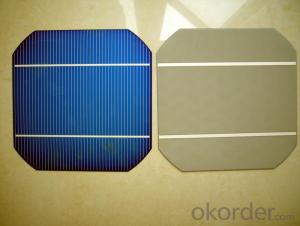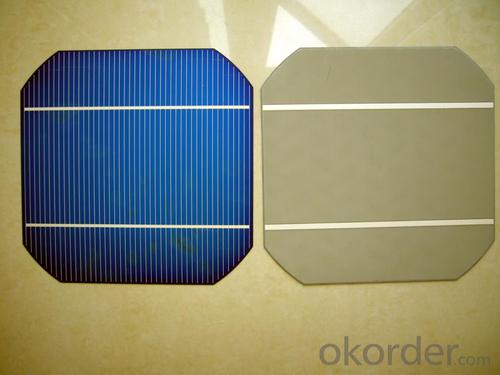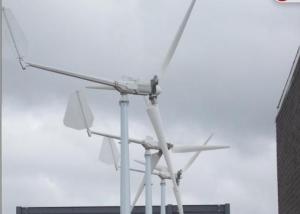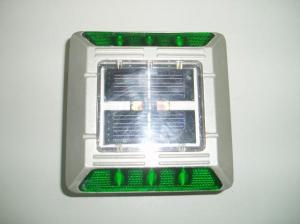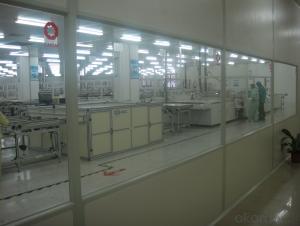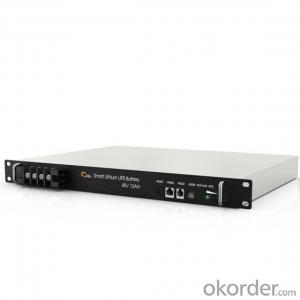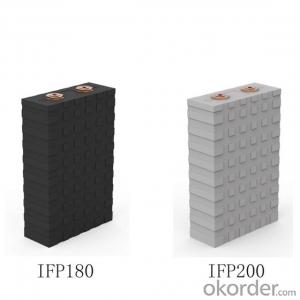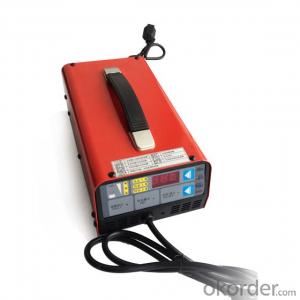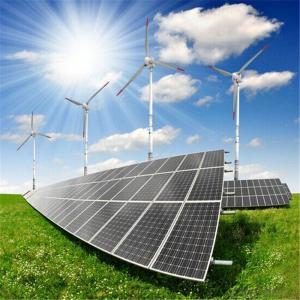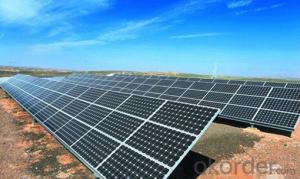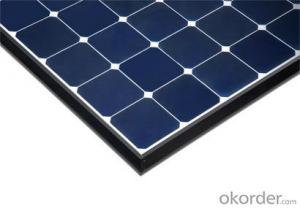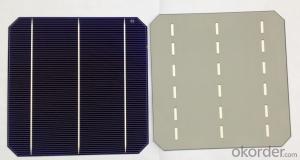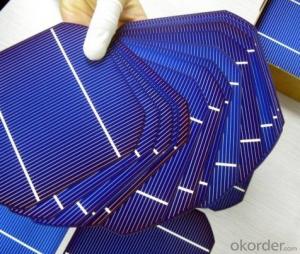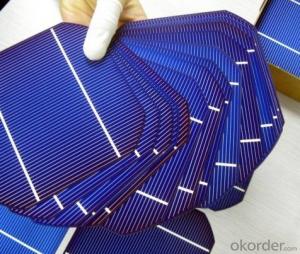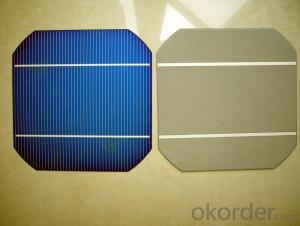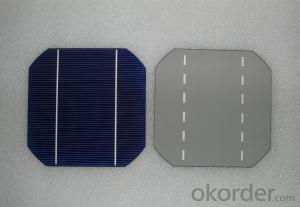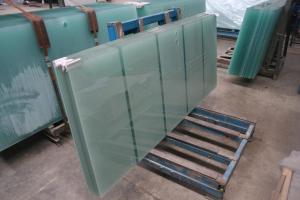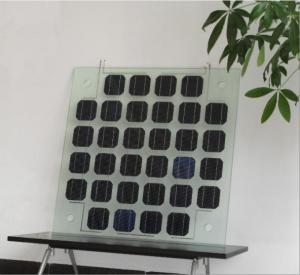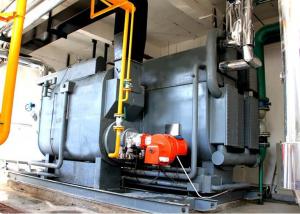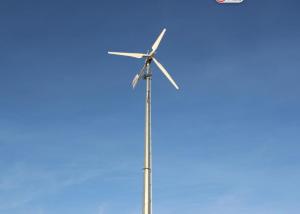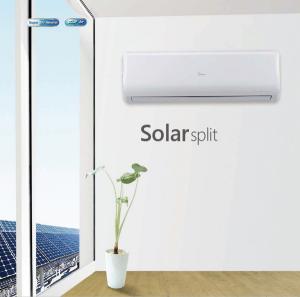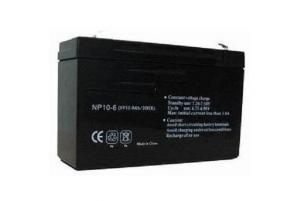4.61W 3 BB A Grade Mono Solar Cell156mm with19.3-19.4% Efficiency approved by CE TUV
- Loading Port:
- Shanghai
- Payment Terms:
- TT OR LC
- Min Order Qty:
- 1000 watt
- Supply Capability:
- 50000 watt/month
OKorder Service Pledge
OKorder Financial Service
You Might Also Like
4.48W 3 BB A Grade Poly Solar Cell156mm with18.4-18.5% Efficiency approved by CE TUV
Product introduction
A solar cell, or photovoltaic cell, is an electrical device that converts the energy of light directly intoelectricity by the photovoltaic effect, which is a physical and chemical phenomenon.[1] It is a form of photoelectric cell, defined as a device whose electrical characteristics, such as current, voltage, or resistance, vary when exposed to light. Solar cells are the building blocks of photovoltaic modules, otherwise known as solar panels.
he solar cell works in several steps:
Photons in sunlight hit the solar panel and are absorbed by semiconducting materials, such as silicon.
Electrons and protons are excited from their current molecular/atomic orbital. Once excited an electron can either dissipate the energy as heat and return to its orbital or travel through the cell until it reaches an electrode. Current flows through the material to cancel the potential and this electricity is captured. The chemical bonds of the material are vital for this process to work, and usually silicon is used in two layers, one layer being bonded with boron, the other phosphorus. These layers have different chemical electric charges and subsequently both drive and direct the current of electrons.[1]
Multiple solar cells in an integrated group, all oriented in one plane, constitute a solar photovoltaic panel or solar photovoltaic module. Photovoltaic modules often have a sheet of glass on the sun-facing side, allowing light to pass while protecting the semiconductor wafers. Solar cells are usually connected in series in modules, creating an additive voltage. Connecting cells in parallel yields a higher current; however, problems such as shadow effects can shut down the weaker (less illuminated) parallel string (a number of series connected cells) causing substantial power loss and possible damage because of the reverse bias applied to the shadowed cells by their illuminated partners. Strings of series cells are usually handled independently and not connected in parallel, though (as of 2014) individual power boxes are often supplied for each module, and are connected in parallel. Although modules can be interconnected to create an array with the desired peak DC voltage and loading current capacity, using independent MPPTs (maximum power point trackers) is preferable. Otherwise, shunt diodes can reduce shadowing power loss in arrays with series/parallel connected cells.[citation needed]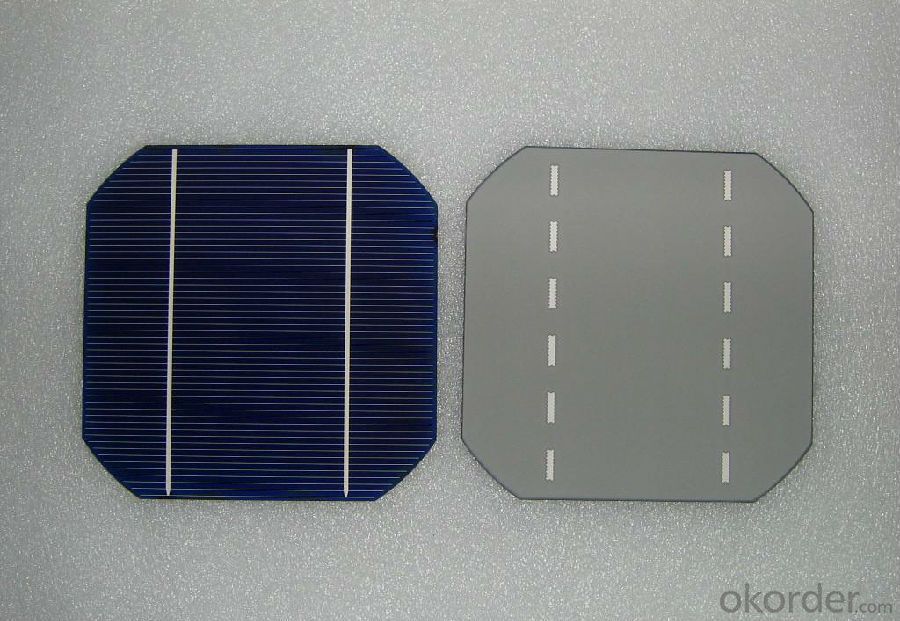
Feature
1. Highly pure mono crystalline silicon wafers are used as the raw material.
2. Silver paste and aluminum paste of superior quality are made into electrode and back surface field.
3. Highly Photoelectric conversion rate, strong resistance to stripping and Superior weldability.
4. Efficient, stable and uniform color.
5. Precise screen printing and high smoothness to ensure the cells are easy to be automatically welded and cut by laser.
Warranty
Peak power of single module is guaranteed in ±0.2%
For solar cells, we assure no cracking or any wholes on it.
For Modules, we assure the 20-year life span.
Packaging
100 pcs in one box 10 boxes in one carton
Send your message to us
4.61W 3 BB A Grade Mono Solar Cell156mm with19.3-19.4% Efficiency approved by CE TUV
- Loading Port:
- Shanghai
- Payment Terms:
- TT OR LC
- Min Order Qty:
- 1000 watt
- Supply Capability:
- 50000 watt/month
OKorder Service Pledge
OKorder Financial Service
Similar products
Hot products
Hot Searches
Related keywords
